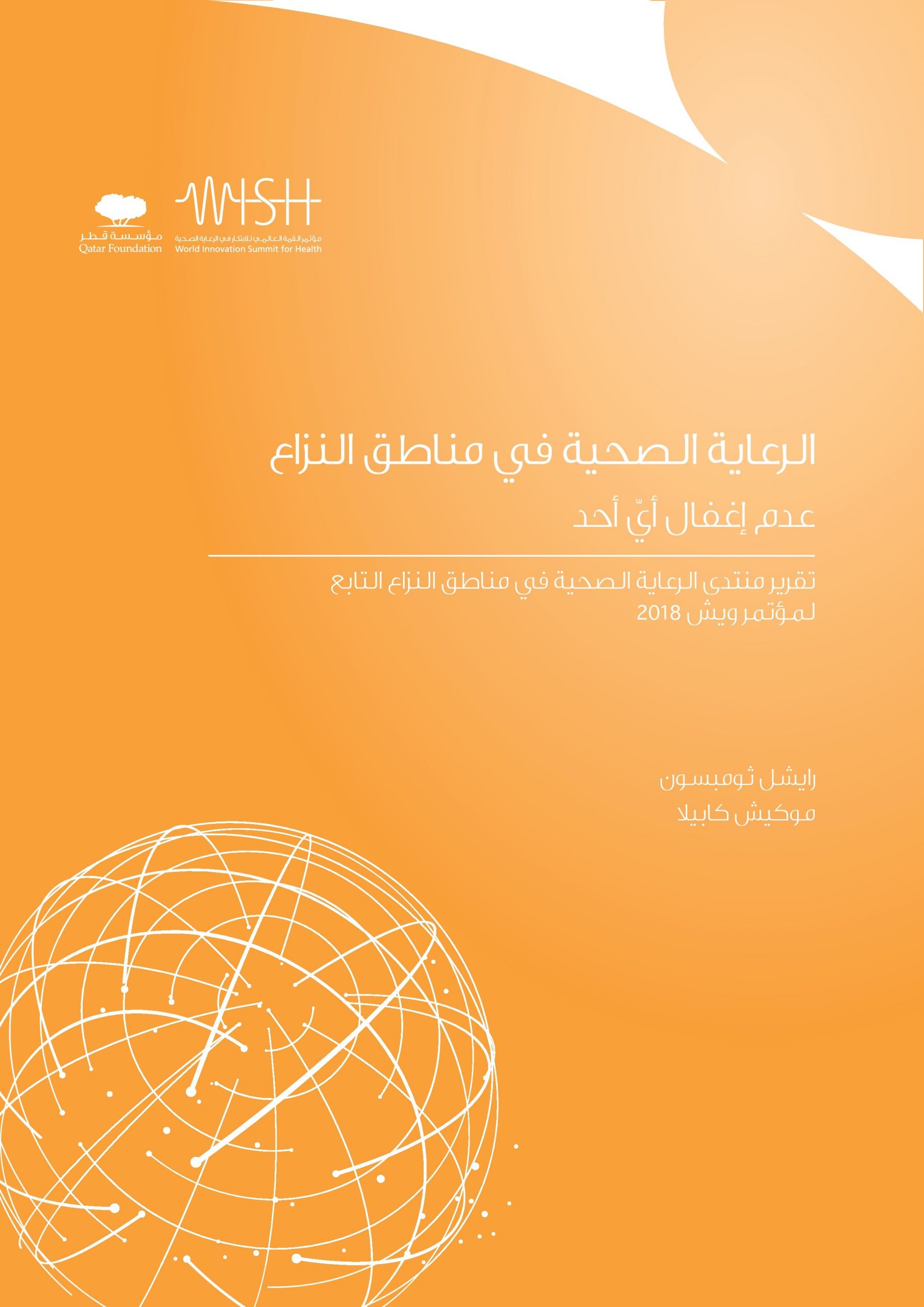الرعاية الصحية في مناطق النزاع: عدم إغفال أي أحد
رايشل ثومبسون موكيش كابيا
يناقش هذا التقرير كيف يجب أن تكون آليات الاستجابة للطوارئ وأنواعها في مكانها الصحيح للتخفيف من شدة الضرر في أماكن النزاع.

رايشل ثومبسون موكيش كابيا
يناقش هذا التقرير كيف يجب أن تكون آليات الاستجابة للطوارئ وأنواعها في مكانها الصحيح للتخفيف من شدة الضرر في أماكن النزاع.
Conflicts today are increasingly complex and protracted. The impact of conflict on an individual’s health ranges from trauma injuries and infectious disease to mental illness and loss of continuity of care for chronic conditions. Conflict also affects the determinants of health, for example, food security and nutrition status. Lack of healthcare personnel, destruction of infrastructure and disruption to supply chains all adversely affect the availability and quality of healthcare.
Yet the imperative to protect medical care in conflict situations is enshrined in international humanitarian law, enacted through humanitarian principles such as impartiality. Health can be a bridge to peace. Human rights and medical ethics apply in conflict, just as they do in peacetime. So do global goals such as UHC and the pledge to ‘leave no one behind’. Although human suffering during conflicts is inevitable, this report considers what more can be done to protect, promote and preserve health and healthcare.
The central question of this report is: how can UHC be achieved in conflict-affected populations by 2030? We present the challenges for this endeavor as well as innovative ideas to enable progress despite the obstacles.
Key challenges discussed include: